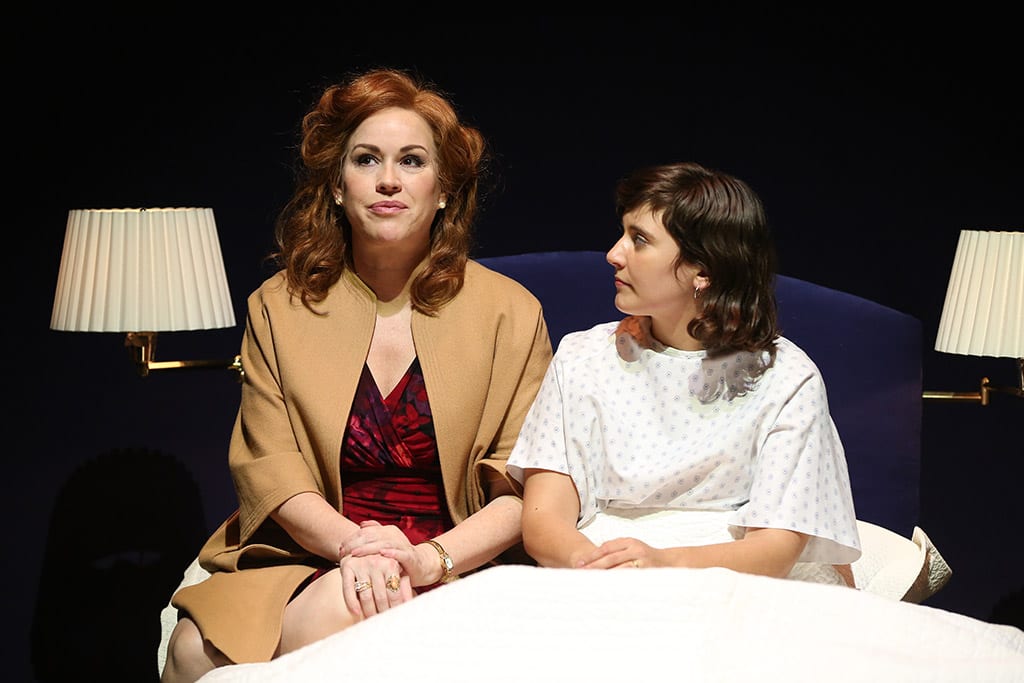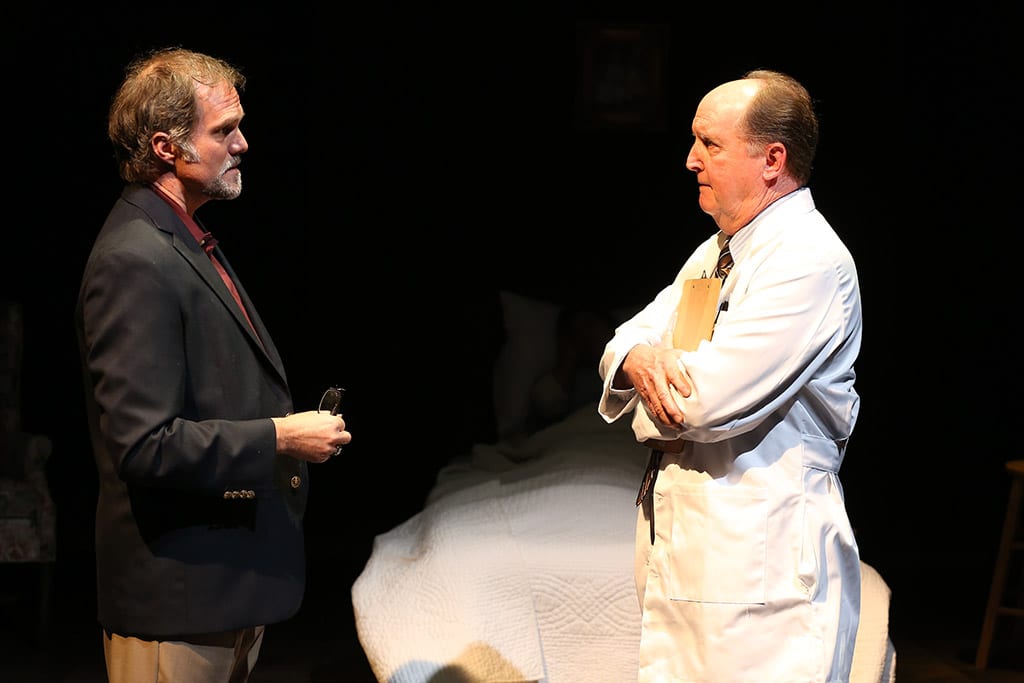There is a challenge–seeing a stage adaptation of a screen adaptation with an Oscar award-winning actress based on a Pulitzer-Prize-winning novel–not to be tempted to compare. In order not to compare, an audience has to be open to either a refreshing, new interpretation or truly moving, deeply-felt performances. Unfortunately we get neither with the Directors Company’s production of Terms of Endearment with Molly Ringwald.
Terms of Endearment spans the period from 1960 through 1983, exploring the complicated lives of Aurora Greenaway (Molly Ringwald) and her daughter Emma (Hannah Dunne). While it is easy to find fault with Ringwald’s somewhat shallow interpretation of the complexities of Aurora’s personality, one must acknowledge that an actress is guided by a script. Ringwald has one sentence to express how she has lived as widow and mother to Emma: “It hasn’t been easy, being a single parent since your father died.” That was hardly enough even for Ms. Ringwald to convey Aurora’s loneliness as a woman and her overprotective obsession toward her daughter and rejection of Emma’s marriage to Flap (Denver Milord).
Aurora reluctantly accepts Emma’s marriage (at least her grandchildren after getting over the shock of being a grandmother) but never Flap. And in the meantime she finds consolation in the arms of her next-door neighbor, astronaut Garrett Breedlove played boisterously by Jeb Brown, displaying his pot-belly. Interestingly, the character of Garrett does not appear in the novel.
Equally unsatisfying is the depiction of Flap played by Mr. Milord with a nonchalance bordering on indifference. Well, at least the actor wore glasses to indicate his scholarly profession, a laudable but scarcely interesting choice.
It may have been at this point when I threw my mind back to dim memories of the film to remember that he is in fact a college teacher. Oh yes, in one of Aurora’s lines she mentions it. And thus began my plunge into the dangerous waters of comparison.
A great deal of effort is put into the visuals of the play – pleasantly appropriate period costumes, a somewhat cramped set with lots of period accessories. The scenic design had three acting areas – Aurora’s bedroom, Emma and Flap’s homes, and a central bed that works for both scenes and finally as a hospital bed for the dying Emma. The actors manage to migrate nicely from scene to scene although it is interesting to note that Dan Brown’s instructions of “no sets, rather three playing areas…suggestive as opposed to fully realized” might have helped the production to concentrate on the real story.
Scenes are introduced with a helpful supertitle telling how many years have passed. There is often a popular song, too, that ultimately only compensates for the lack of emotional impact from what we just witnessed or what we are about to see, commenting on the emotional impact in an unnecessary attempt at humor.
The mood abruptly shifts when Emma discovers that she has terminal cancer. Aurora rushes to her bedside. She also must deal with a typically insensitive doctor (played by John C. Vennema with caricatured pomposity). Until her death scene, Ms. Dunne sustained a believable and touching character, but Gordon’s script, with scant mention of her children, has her dictate an interminable letter to them that Aurora must furiously write which actually takes away her focus from her dying daughter.
At this moment, the same scene from the film surges forth. The dying Emma (Debra Winger) speaks with her sons at her bedside begging them to accept her death. It’s a simple, direct and moving scene.
Oops, I’m comparing again.



